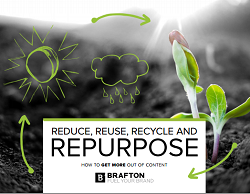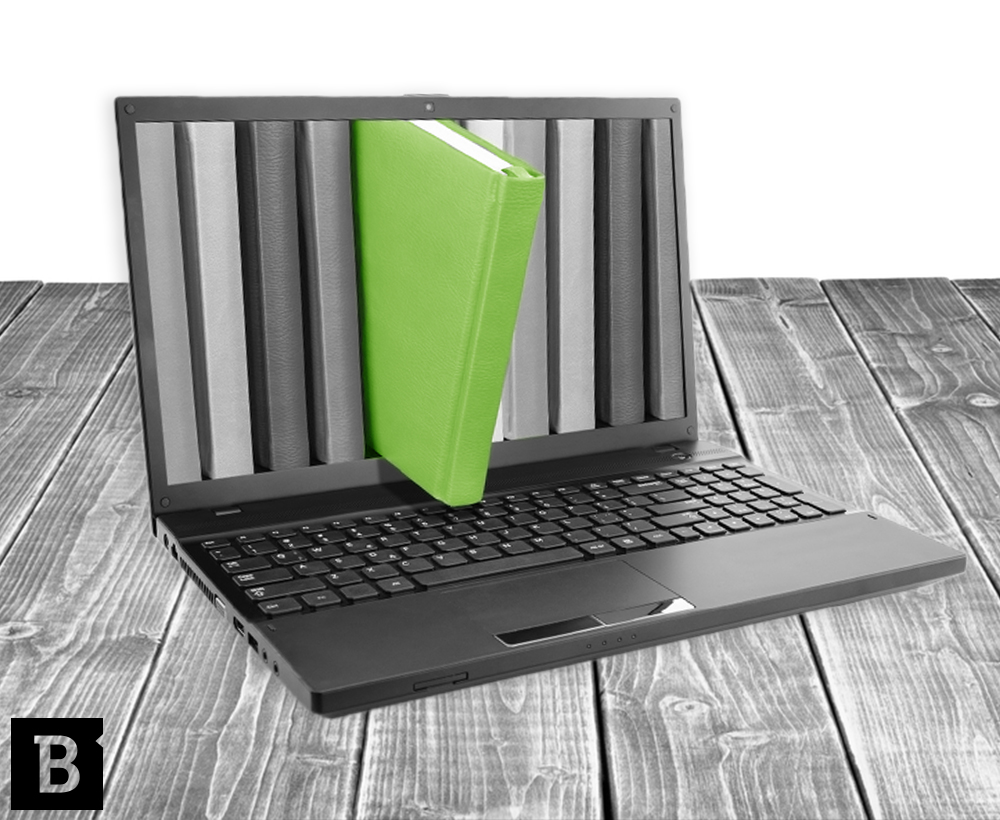Online readers have evolved from standard print. At Brafton, we’ve redefined the parameters of our eBook product to accommodate this – creating a perfect combination of crisp, clear copy, partnered with the visual appeal of a compelling graphic.
More than 390 of Brafton’s customers use our white papers, but more and more they’re asking about our eBooks. Here’s why we’re thrilled:
They can be used for different stages of your content marketing funnel
Our clients find that strategic topic selection and promotion for eBooks makes them an excellent resource for lead generation, conversions, engagement and thought leadership (sometimes all at once).
They’re different from your white papers
When you think of an eBook, think chapter-book chunks of digestible data that’s illustrated through graphic images, whereas white papers are more comparable to a longform research paper. While white papers are designed to showcase subject matter expertise, eBooks are designed to educate.
They require collaboration, which means a fully comprehensive reading experience
A subject matter expert, writer, graphic designer and production coordinator all act as critical components to an eBook’s success, and at Brafton they’re working side by side. Our creative and strategic teams devise eBook topics and work collaboratively through a streamlined process to achieve a winning product.
The byproducts of an eBook are fuel for different channel engagements
eBooks feature data-rich copy that can be repurposed toward more than one sales cycle or campaign.
They’re gaining popularity
32 percent of B2B companies and 28 percent of B2Cs had eBooks in their 2013 content marketing, and that number is only growing in 2014. Based on the results they drive, we’ve had a 300 percent increase in customer ebook adoption in the past year.
A snapshot of eBook success
New Brafton clients who downloaded our eBooks had a 16 percent higher than average deal size.
An eBook is a premium format, and the final product is a sophisticated resource that provides real value. At press time, 57 percent of B2B marketers report they feel confident that eBooks are an effective web marketing tool. We know that’s the case for our agency’s own marketing team: 9 percent of new Brafton customers had downloaded eBooks through Brafton.com before converting. Of our new clients, those who downloaded our eBooks had a 16 percent higher average deal size.
Some feedback from our recent eBook, Reduce, Reuse, Recycle and Repurpose: How to get more out of content, has been fodder for further conversation:
 Can you tell me more about the difference between a white paper and an eBook?
Can you tell me more about the difference between a white paper and an eBook?
Is it a bad idea to repurpose newsletters in to blogs? Can we discuss with one of your consultants?
Some responses were more transactional:
Thank you, this was great. Can Brafton be hired for just a component of a strategy like [the one explained]?
Great resource. Wondering – what kind of budget would we need for you to work on this for us?
Is an eBook right for your brand?
The first step to creating an effective eBook is to ensure that this type of medium is the best choice for the given topic. Here are a few ways to tell if your eBook topic would be successful:
- You’re looking for a way to introduce your audience to a concept or service.
- You want to take an intricate or challenging topic and make it easily understandable.
- You have a topic that would be best represented through a combination of words and graphic images.
- You’re looking to boost lead generation on your website (an eBook placed behind a download wall will allow you to gain readers’ information before they access the resource).
Want to learn more? Contact us for client examples.





